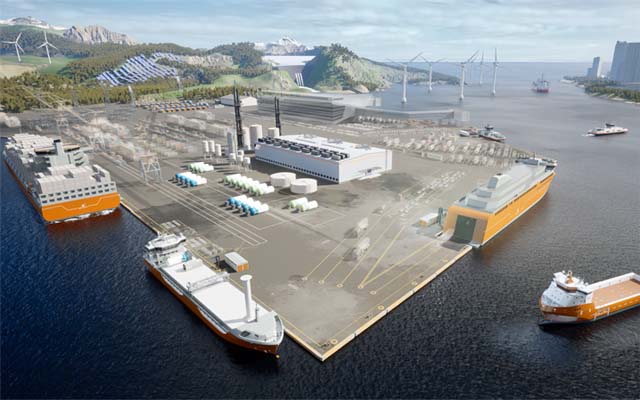Wärtsilä is to supply a hybrid-electric propulsion system for an 11,000 dwt limestone carrier contracted by Montreal-based CSL Group (CSL) with CCCC Shanghai Equipment Engineering and Jingjiang Nanyang Shipbuilding.
The order reflects CSL’s focus on reducing its emissions profile via a comprehensive decarbonisation strategy. Wärtsilä has been closely involved in developing the concept for the hybrid-electric propulsion system selected to optimise the engine and battery loading for the ship’s operating conditions. The system will provide redundancy when operating in confined waters to improve safety, while at the same time improving efficiency and reducing fuel consumption.
Frédéric Jauvin, CSL VP Global Technical Services said: “We require an electrically integrated hybrid-powered propulsion solution from a single-source supplier capable of providing lifecycle support. Wärtsilä was selected for our newbuild project because of their proven ability, experience and track record in delivering high-quality electrification and hybridisation systems.”
The limestone carrier, when delivered in 2026, will be the first fully electric battery-capable self-unloading vessel. It will initially run on a hybrid diesel and battery system, with 50% of total battery capacity installed replacing diesel with electric power. By 2031, the aim is to run the ship entirely on electric power, further reducing carbon emissions to less than 10%.
Torsten Büssow, Director, Electrical and Power Systems Business, Wärtsilä Marine said: “Wärtsilä is committed to making decarbonised shipping possible, so we are delighted to be supporting CSL with solutions that enhance the sustainability of their fleet. This is a short sea shipping vessel that will operate with a lot of manoeuvring and variable load profiles, and electrification and hybridisation systems are the most efficient for such vessels.”
For this vessel, Wärtsilä will supply the whole hybrid electric propulsion system, including generators, DC hub, energy and power management system, main propulsion e-motors, bow thruster e-motors, and the battery solution. Delivery is scheduled for early 2025.
Image: Example image of a ship electrification ecosystem (credit: Wärtsilä Corporation)



